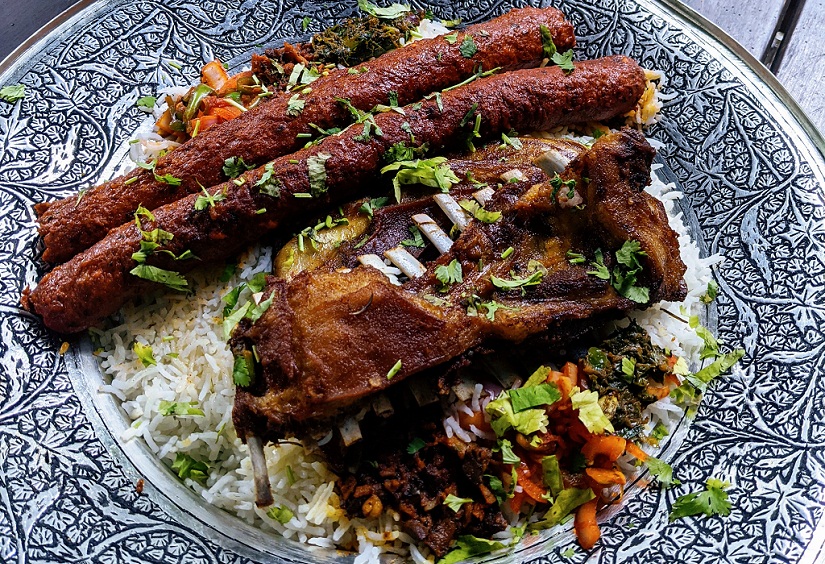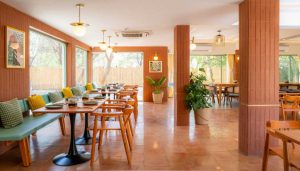Pune: Feast From The Kashmir Valley At Chinar In Baner

Ketaki Latkar-Mahajan
Pune, 18th November 2021: If meat indulgence is your strong suit, then waste no time in reserving a table for yourself at Baner’s Kashmiri food junction: Chinar—With Love, from Kashmir. The spices, the recipes, the culinary tradition, as also the wall art and music at Chinar—it’s all things Kashmir.
Enter the place, and you are warmly welcomed by the driving forces running the place: Zahoor Ahmed Mir and Ashesha Jindal. Given his roots in Kashmir, Zahoor takes the patrons on a culinary ride through the Wazwan (multi-course meal) journey. And while he’s at it, Ashesha fills the gastronomes in about all the food trivia, and the “tehzeeb” or eating etiquettes. I am putting together a list of highlights while experiencing the sit-down meal at Chinar.
1) Isband Soz: Made in glistening copper (alternatively, in silver), the ‘isband soz’ is similar to an incense burner. Before embarking on the traditional Kashmiri Traemi (thali) experience, this burner is placed in the dining room for a while, with the belief that it purifies the vibe around and wards off evil. Additional trivia on it: it is a typical item in the Kashmiri bridal trousseau, and apparently, also makes for a rare, splendid gift idea for non-Kashmiris.

2) Mutton Delights: Wazwan is often devoured during Kashmiri weddings. It is an elaborate multi-course meal consisting of nothing less than 36 (or more) meat-based varieties, primarily made of lamb. What you see in the Traemi we relished (from top to bottom) is a line-up of the lamb dishes: seekh kebabs, tabak maaz (mutton ribs cooked in desi ghee), methi maaz (mutton intestines), and the waaza haakh (Kashmiri collard greens cooked in aromatic spices).
3) Saffron Notes: Sweetened with notes of honey, and always sans any milk, Kahwa is perfect to sign off from the meat-driven abundance that Wazwan offers. Kahwa is prepared using Kashmiri green tea infused with saffron, cardamom, cinnamon, and slivers of almonds, and is served in a spouted, copper kettle called the “samovar.”

ADVT









